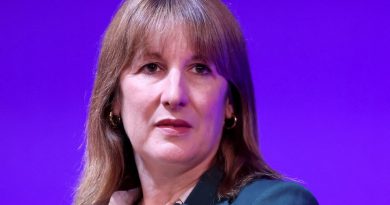Islamic Philanthropy: Joint ceremony in Dubai, UNHCR and Al-Ghurair Refugee Foundation release report
The paper explains the value of using Islamic philanthropy methods and their expanded function in addressing the needs of displaced persons all over the world.
In a joint ceremony in Dubai, UN High Commissioner for Refugees and the Abdulaziz Al-Ghurair Refugee Education Foundation, unveiled its annual Islamic Philanthropy Report.
The paper explains the value of using Islamic philanthropy methods and their expanded function in addressing the needs of displaced persons all over the world.
According to the UN, there are currently more than 100 million individuals who have been forcefully relocated globally. By the end of the year, the figure will probably be 117 million.
The Muslim world or Organization of Islamic Cooperation governments, according to Khaled Khalifa, senior adviser and UNHCR representative to the Gulf Cooperation Council nations, account for more than half of the world’s refugee cases.
The OIC asserts that calamities and armed conflict have a disproportionately negative impact on Muslim populations.
Due to the growing demand of donors and institutions to contribute funding to refugees, the UN established the Refugee Zakat Fund in 2017. Since its founding, the fund has assisted about six million people who have been forcibly relocated.
In 2022, zakat and sadaqah donations helped the UNHCR provide assistance to approximately 1.5 million refugees and internally displaced individuals in 21 different countries.
Partners included the UNHCR’s global Ramadan and winter campaigns, the Refugee Zakat Fund mobile app, His Highness Sheikh Thani bin Abdullah bin Thani Al Thani, and Mohammed Bin Rashid Al Maktoum Global Initiatives.
One of the tenets of Islam is the concept of zakat, an Islamic financial phrase. Every Muslim must give away a percentage of their earnings to charity. Muslims must fulfil specific requirements in order to be eligible for zakat. When they do, a payment of 2.5 percent of the recipient’s entire wealth and savings is made.
Due to the wars in Syria and Iraq as well as those escaping wars and failed nations in Libya, Somalia, Sudan, Yemen, and Afghanistan, the Middle East has seen a huge influx of refugees and forced migration over the past 15 years.
The Honorable chairman of the Abdullah Al-Ghurair Foundation, Abdulaziz Al-Ghurair, stated during the keynote address of the event: “The Middle East and North Africa is confronting tremendous problems.
“The region is home to more than 16 million refugees and displaced persons, and it has one of the highest rates of youth unemployment under 25 in the world.
“We cannot disregard the surroundings we live in. Islamic generosity will produce a long-term sustainability that gives the most disadvantaged people an opportunity to become financially independent and self-sufficient if it is used as it was intended.
Al-Ghurair established the Refugee Education Fund in 2018, with a focus on beneficiaries in Jordan and Lebanon. Over the course of three years, it provides $32 million to support 20,000 refugees’ enrollment in secondary, vocational, and higher education.
760,000 registered refugees and asylum seekers reside in Jordan. Among those, 670,000 are from Syria, making Jordan, behind Lebanon, the country that hosts the most Syrian refugees per person worldwide.
“Before the refugee crisis, Jordan and Lebanon faced enormous unemployment and poverty, so they had a double burden. We are trying to alleviate this through education, which provides access to jobs and a better life”, Danah Dajani, director of partnerships and programmes at the Abdulla Al-Ghurair Foundation, told Arab News.
Access to education for refugees is becoming more and more challenging. 68 percent of school-age refugees are enrolled in elementary education, 37 percent of refugee adolescents are involved in secondary education, and only 6 percent are enrolled in higher education, according to the UNHCR.
According to Al-Ghurair, the Refugee Education Fund is focused on providing refugees in the region with access to equitable and high-quality education in order to provide them a better future.
Since the fund’s inception in 2018, it has “been able to significantly improve the life chances of more than 60,000 vulnerable youngsters in Jordan and Lebanon with the support of partners like UNHCR”.
The Islamic Philanthropy Report was introduced in collaboration with the Refugee Education Fund for the first time this year.
According to the report, since it was established in 2017, the Refugee Zakat Fund has allowed UNHCR to assist about 6 million refugees and internally displaced persons in 26 nations.
More than 1.5 million IDPs and refugees will get aid in 2022, according to this number.
According to Al-Ghurair, one of the most significant untapped resources for collaborative humanitarian work is Islamic philanthropy.
“In a time when we are dealing with numerous global challenges, this is significant. To make giving efficient and effective, we must work together and make a concerted effort.
Over the past five years, the potential of Muslim generosity has gained more attention. The UN has called for novel approaches and fresh collaborations to use Islamic financial resources to find answers, such as the Zakat Refugee Fund.According to Khalifa, Islamic philanthropy is as old as Islam itself. “Although it is something new for the UN, we are merely using methods of Islamic generosity that have been proven and true throughout the years. We made the decision to enter this profession because we thought we could be useful and because we noticed that the OIC states accounted for 50% of the caseload of displaced people.
According to Khalifa, the number of persons forcefully displaced has not decreased over the past ten years.
According to him, the trajectory is rising as a result of conflicts, which account for 80% of the world’s problems, persecution owing to violations of human rights in many locations, and most recently, climate change.
“We are also observing a rise in the number of people who have been displaced due to climate change on a global scale, and we hope that people, governments, and institutions will be sensitive to the plight of those in need, particularly since some of them are suffering or confronting a double crisis at the same time, like the Syrians who are actually living in a state of emergency due to the recent earthquake.
Khalifa added that the UN uses money from its regular budget to pay for the costs associated with the fund’s distribution. Also, the fund’s proceeds are given out in cash.
“We receive a million dollars, we distribute a million dollars, and we report on a million dollars. In addition, we cover everything else, including bank transfers from other sources,” he continued.
The Global Islamic Fund for Refugees was established by UNHCR and the Islamic Development Bank at the end of March 2022. The fund, which opens up fresh Islamic philanthropic funds to aid millions of forcibly displaced people, is a sustainable and Shariah-compliant resource mobilisation tool.
“Up until now, the Gulf has provided the majority of our Islamic revenue support,” added Khalifa.
Saudi Arabia is one of our biggest backers and contributors, especially through the King Salman Humanitarian Assistance and Relief Center.
According to Al-Ghurair, who spoke to Arab News, philanthropists can help raise funds in areas where there are limited resources to support better results, and the accountability will foster greater trust, which will support governments in meeting the rising demand for education as the difficulties multiply.
“As Ramadan draws near, I call on all charitable individuals to band together to support and enhance the lives of tomorrow’s leaders”.



